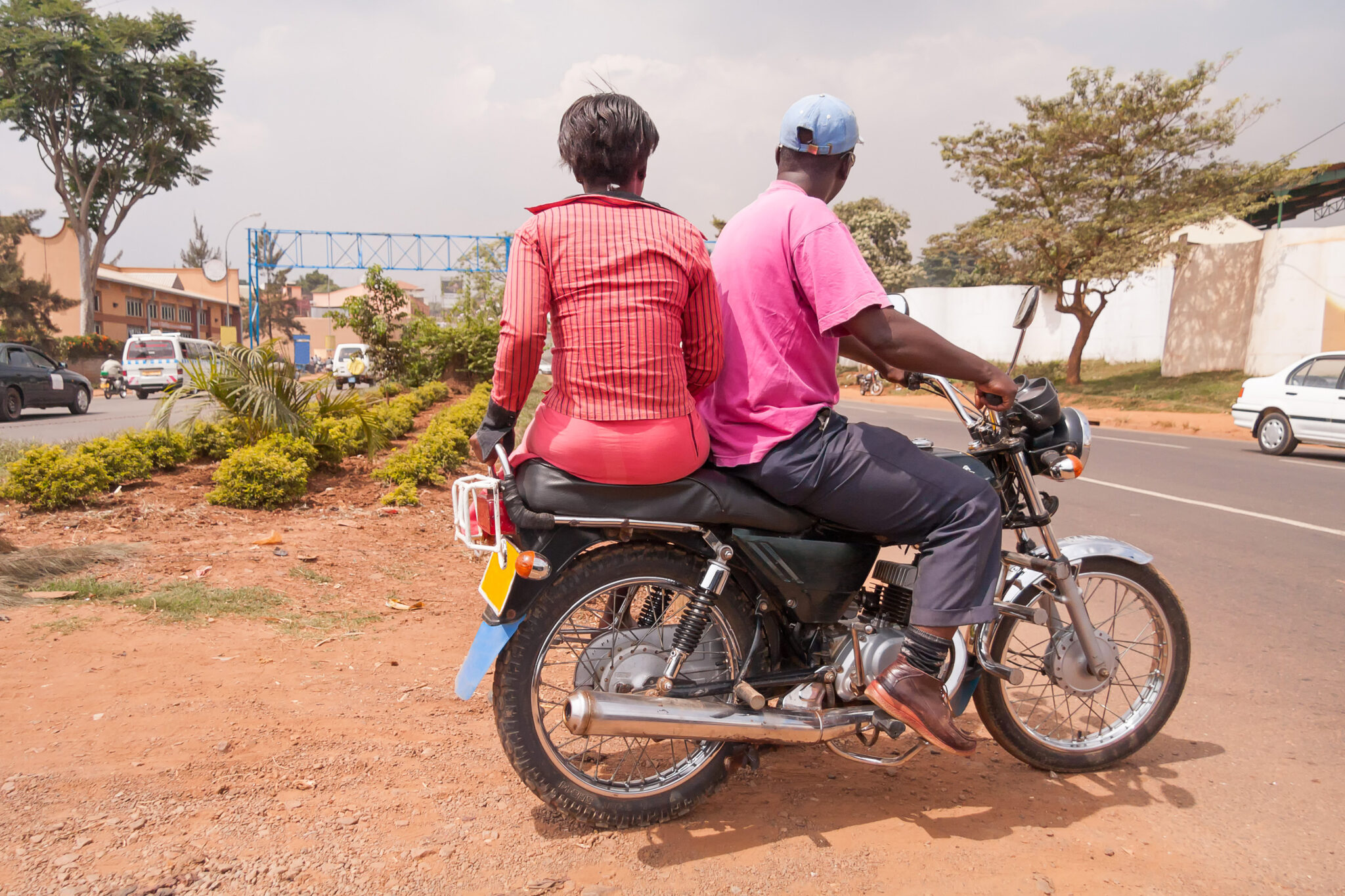Low-Cost Air Pollution Monitoring

Woman and man sit back on motor bike on roadside in Kampala, Uganda. © shujaa_777 – stock.adobe.com
Poor regulatory environments combined with rapid economic development has led to near-continuous hazardous pollution levels for many countries around the world. The World Health Organization (WHO) estimates 4.2 million people die from outdoor air pollution every year, with deaths concentrated in low-income countries. However, there is a severe shortage of data on air pollution in low and middle-income countries due to the prohibitive cost of air-pollution monitoring devices. This shortage of data on the intensity, location, and causes of air pollution limits effective policy responses to this dire public health challenge. This project uses new low-cost air quality sensing devices that are attached to boda-bodas (motorcycle taxis) to surmount technical and economic barriers to detailed and real-time monitoring of air quality. With seed funding through the CEGA managed Development Impact Lab (DIL), Engineer Bainomugisha, and Associate Professor at Makerere University, was able to deploy the air sensor monitors, collect and analyze air quality data in Kampala, and develop a robust system for monitoring and accurately estimating air quality and sources of pollution. This model was eventually scaled through AirQo— a low-cost air quality monitoring, research and analysis network in Uganda.
The AirQo team are demonstrating the long-term sustainability of their model for pollution monitoring, and its potential for informing public policy responses. In 2019, AirQo won $1.3 million, the only African winner of the Google AI Impact Challenge, allowing them to further scale and improve their forecasting models across Kampala and other urban towns in Uganda. Their real-time air pollution maps are now available on mobile phones, web platforms, and social media. AirQo is now actively contributing to National Air Quality standards and a 2020 World Bank report on Pollution Management and Making of Prosperous Cities. Additionally, AirQo partnerships with numerous civil society partners have led to increased air quality awareness and to the formation of the Kampala Air Quality Working Group.





